In the world of dog breeds, some have gained immense popularity and continue to thrive, while others face the grim reality of dwindling numbers. Various factors contribute to the decline of certain breeds, including changes in lifestyle, lack of awareness, and the rise of more fashionable breeds. Preserving these breeds is crucial, as each represents a unique part of canine history and biodiversity. This article highlights fifteen dog breeds at risk of disappearing, shedding light on their history, characteristics, and the urgent need for conservation efforts. From well-known breeds facing decline to lesser-known gems, this list aims to raise awareness and appreciation for these endangered canine companions.
15. Otterhound
The Otterhound is a rare breed originating from England, known for its exceptional scenting ability and love for water. Bred for hunting otters, this large and affectionate breed has seen a dramatic decline in numbers due to the ban on otter hunting and changing hunting practices. Today, the Otterhound’s playful and friendly nature makes it a delightful companion, but its rarity threatens its survival.
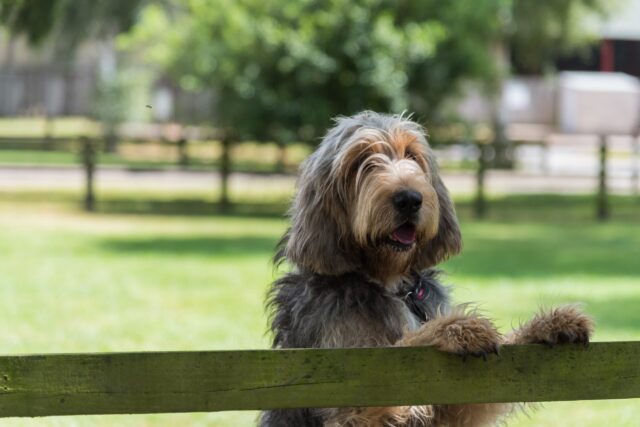
14. Sussex Spaniel
The Sussex Spaniel, with its distinctive golden liver coat, is one of the oldest spaniel breeds. Originating from England, these dogs were used for hunting and retrieving games. Despite their gentle temperament and loyalty, Sussex Spaniels face dwindling numbers due to their limited breeding population and competition from other spaniel breeds. Conservation efforts are essential to preserve this charming and historic breed.

13. Glen of Imaal Terrier
The Glen of Imaal Terrier, hailing from Ireland, is a small but sturdy breed known for its hunting and vermin control skills. These terriers are affectionate and loyal, making them excellent family pets. However, their low numbers and limited breeding have placed them at risk. Efforts to increase awareness and promote responsible breeding are crucial to ensuring the survival of this spirited breed.
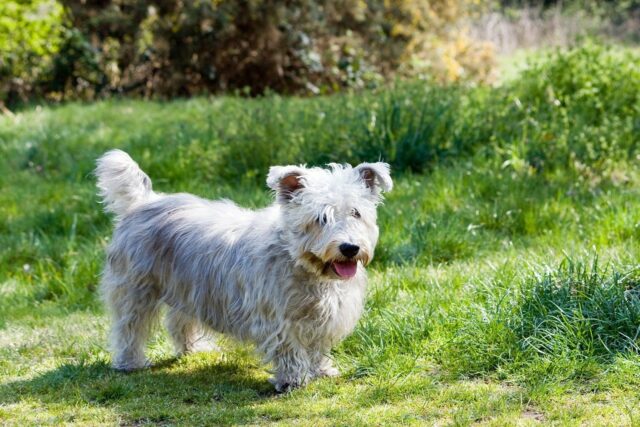
12. Dandie Dinmont Terrier
The Dandie Dinmont Terrier is a distinctive breed with a unique “topknot” of hair on its head. Originating from the border region between Scotland and England, these terriers were bred for hunting otters and badgers. Despite their charming appearance and affectionate nature, Dandie Dinmont Terriers face the threat of extinction due to their small population and limited breeding. Conservation efforts are vital to preserving this historic breed.
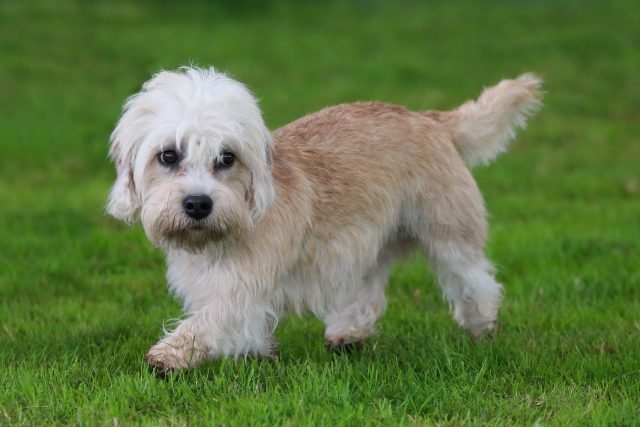
11. Skye Terrier
The Skye Terrier, a Scottish breed with a long and elegant coat, was once a popular choice among nobility and royalty. Known for its loyalty and bravery, the Skye Terrier has seen a decline in numbers due to changing preferences and the popularity of other terrier breeds. Raising awareness about the breed’s unique qualities and promoting responsible breeding are essential to prevent its disappearance.
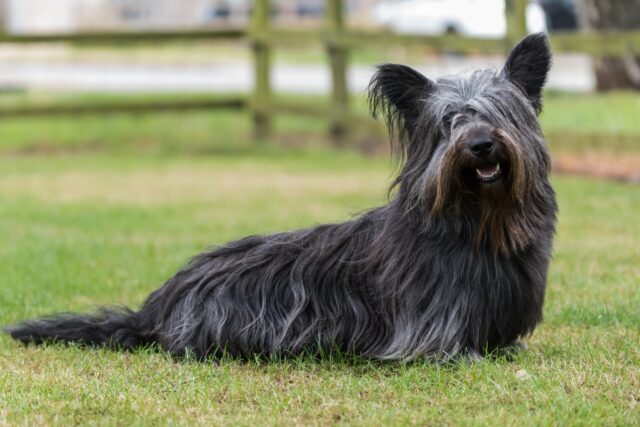
10. Field Spaniel
The Field Spaniel, developed in England for hunting and retrieving games, is a versatile and intelligent breed. Despite its excellent working abilities and gentle temperament, the Field Spaniel faces a decline in numbers due to its overshadowing by more popular spaniel breeds. Efforts to promote the breed and encourage responsible breeding are necessary to ensure its survival.
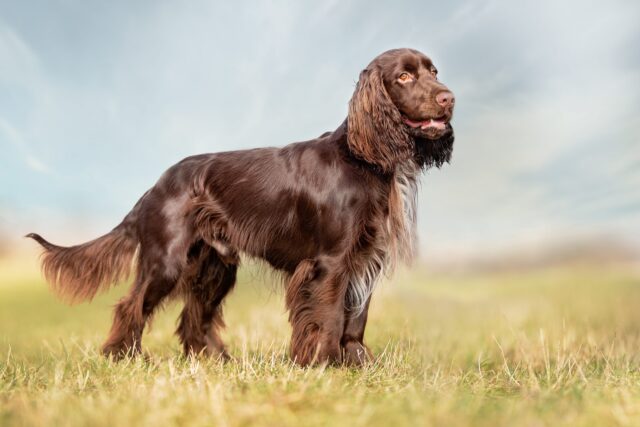
9. English Toy Terrier
The English Toy Terrier, also known as the Black and Tan Terrier, is a small and elegant breed with a rich history. Originally bred for ratting and as a companion dog, this breed has seen a decline in numbers due to changing preferences for toy breeds. Promoting the unique characteristics and historical significance of the English Toy Terrier is crucial to preserving its future.
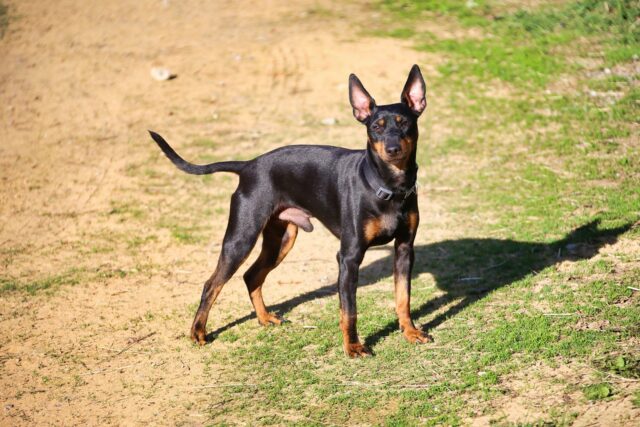
8. Lancashire Heeler
The Lancashire Heeler is a small and agile breed from England, traditionally used for herding cattle and hunting vermin. Known for its intelligence and versatility, the Lancashire Heeler faces a decline in numbers due to its limited breeding population and competition from other herding breeds. Conservation efforts and increased awareness are vital to ensuring the survival of this charming breed.
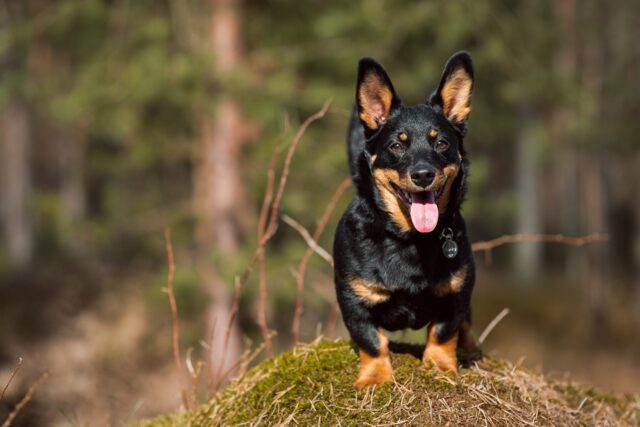
7. Norwich Terrier
The Norwich Terrier, a small and spirited breed, was originally developed in England for hunting and vermin control. Despite their affectionate nature and lively personality, Norwich Terriers face declining numbers due to limited breeding and competition from other terrier breeds. Promoting the breed’s unique qualities and encouraging responsible breeding is essential to preserving this delightful companion.
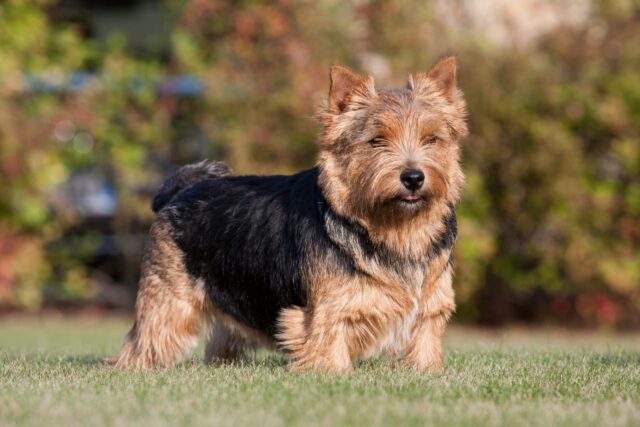
6. Curly-Coated Retriever
The Curly-Coated Retriever, one of the oldest retriever breeds, is known for its distinctive curly coat and excellent retrieving abilities. Despite their intelligence and versatility, Curly-Coated Retrievers face declining numbers due to their overshadowing by more popular retriever breeds. Efforts to raise awareness and promote responsible breeding are crucial to ensuring the survival of this historic breed.
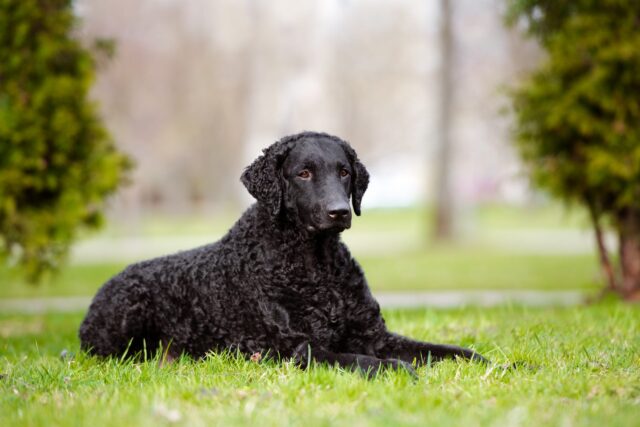
5. Sealyham Terrier
The Sealyham Terrier, developed in Wales for hunting and vermin control, is a small and spirited breed with a distinctive appearance. Despite their friendly and lively nature, Sealyham Terriers face declining numbers due to limited breeding and competition from other terrier breeds. Efforts to raise awareness and promote responsible breeding are necessary to ensure the survival of this charming breed.
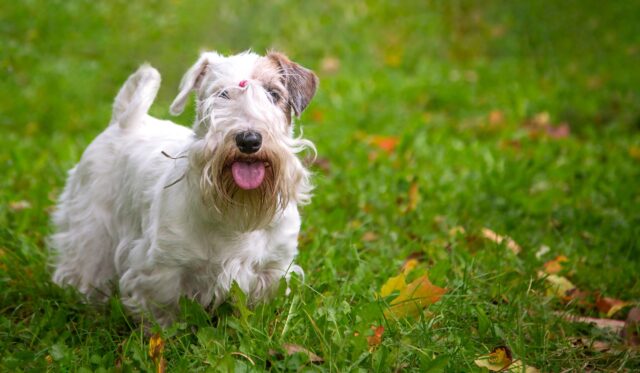
4. Belgian Laekenois
The Belgian Laekenois, one of the four Belgian Shepherd breeds, is a lesser-known but highly versatile breed. Known for its intelligence and protective nature, the Laekenois faces declining numbers due to limited breeding and competition from its more popular Belgian Shepherd relatives. Efforts to raise awareness and promote responsible breeding are necessary to ensure the survival of this loyal and hardworking breed.
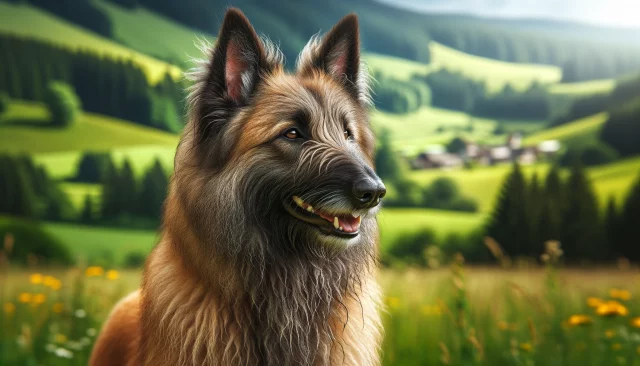
3. Stabyhoun
The Stabyhoun, originating from the Netherlands, is a rare and versatile breed used for hunting, guarding, and companionship. Known for its intelligence and gentle nature, the Stabyhoun faces a decline in numbers due to its limited breeding population and competition from other versatile breeds. Conservation efforts and increased awareness are vital to preserving this charming and hardworking breed.
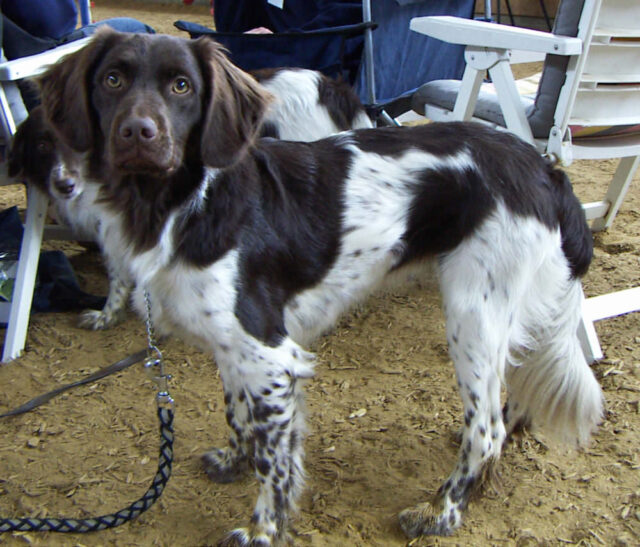
2. Norwegian Lundehund
The Norwegian Lundehund, an ancient breed from Norway, was developed for hunting puffins on cliffs. Known for its unique physical adaptations, including extra toes, the Lundehund faces a decline in numbers due to genetic health issues and limited breeding. Efforts to raise awareness and promote responsible breeding are essential to preserving this unique and agile breed.
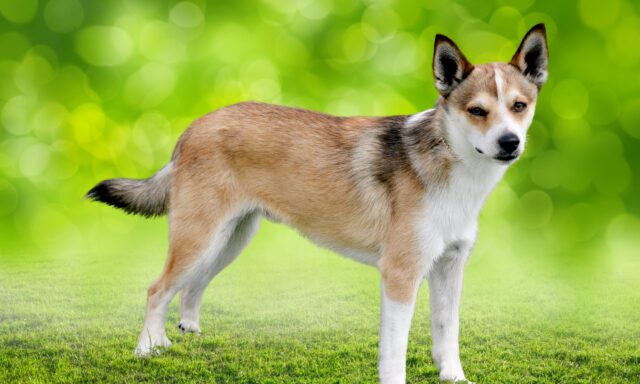
1. Harrier
The Harrier, an English breed used for hunting hares, is a versatile and energetic dog known for its endurance and friendly nature. Despite their excellent hunting abilities, Harriers face a decline in numbers due to limited breeding and competition from other hound breeds. Conservation efforts and increased awareness are essential to preserving this historic and hardworking breed.
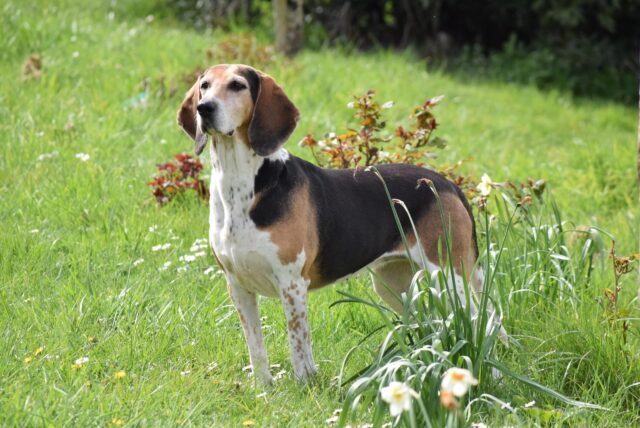
In conclusion, these fifteen dog breeds represent a unique part of our canine heritage, each with its own history, characteristics, and contributions to the world of dogs. Preserving these breeds requires concerted efforts in conservation, responsible breeding, and raising awareness about their plight. By recognizing the value of these endangered breeds, we can work towards ensuring their survival for future generations to appreciate and enjoy.
 Toledo, United States.
Toledo, United States.